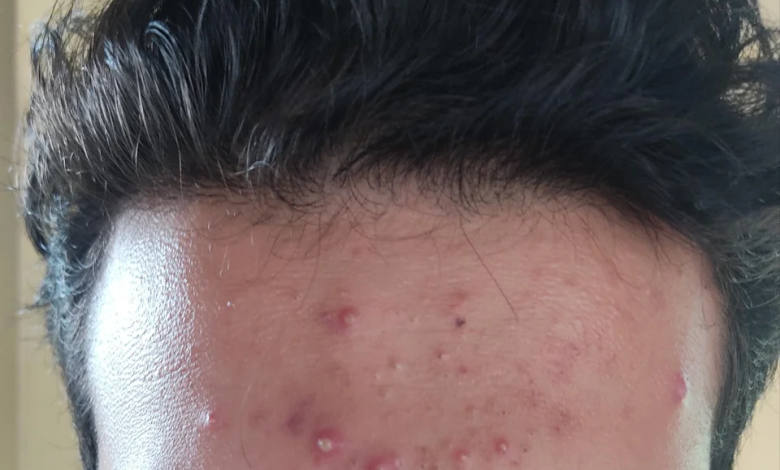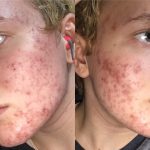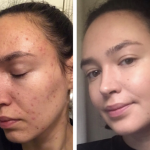A Review Of Over 200 Studies Reveal The Gold Standard For Acne Treatment

Acne is a highly prevalent skin condition that affects a large portion of the population, particularly during adolescence and early adulthood. Up to 85-90% of teenagers worldwide experience acne, while around 40-55% of young adults between 20 and 29 continue to be affected. Although acne is more common in adolescents, it can still impact about 12-15% of adults, with women being more susceptible to persistent acne due to hormonal fluctuations.
The condition can vary in severity, with some individuals experiencing mild outbreaks and others facing more severe cases requiring medical attention. The complexity of acne treatment arises from the diverse factors contributing to its development, the variation in individual skin types and responses to treatments, and the range of available therapeutic options. Acne is influenced by hormonal changes, genetics, lifestyle, and environmental factors, necessitating a multifaceted approach to address its root causes effectively.
Treatment plans often involve a combination of topical agents, oral medications, and in some cases, energy-based devices or hormonal treatments. The challenge lies in tailoring treatments to each person’s unique needs while considering potential side effects, adherence to regimens, and the progression of acne severity.
A new review of over 200 studies has highlighted the significant impact acne has on the quality of life for millions of individuals. However, among various treatments available, one appears to stand out as the most effective. Oral isotretinoin, commonly known as Accutane, emerged as the clear winner when researchers compared acne treatments.
Isotretinoin, a high-dose vitamin A, addresses the root causes of acne by shrinking oil-producing sebaceous glands, eliminating acne-causing bacteria, preventing clogged pores, and reducing inflammation. Acne experts in daily practice also confirm the exceptional efficacy of isotretinoin in clearing acne and providing long-lasting results for most patients.
Dr. Julie Harper, a respected dermatologist from Birmingham, Ala., and founding director of the American Acne and Rosacea Society, emphasized the drug’s predictability in treating acne. She praised its ability to achieve lasting clearance in the majority of patients. However, due to potential side effects such as severe birth defects, liver issues, and concerns about depression, isotretinoin may not be suitable for everyone.
For those who cannot take isotretinoin, a combination of agents with different modes of action is the next best option. This combination includes antibiotics (oral or topical), retinoids, and benzoyl peroxide.
The study, led by Dr. Chung-Yen Huang from the National Taiwan University Hospital in Taipei, reviewed 221 studies involving approximately 65,600 people with acne, averaging 20 years of age. They assessed 37 acne treatments based on their effectiveness in reducing the percentage and number of inflammatory or noninflammatory pimples.
Oral isotretinoin ranked as the most effective acne treatment, followed by triple therapy with topical antibiotics, benzoyl peroxide, and retinoids. Retinoids help unclog pores and reduce inflammation, benzoyl peroxide targets acne-causing bacteria, and antibiotics reduce redness, swelling, and inflammation associated with acne.
The research, published in the Annals of Family Medicine’s July/August issue, did not include some other effective acne treatments. Dr. Harper mentioned that oral hormonal treatments, like spironolactone and combination oral contraceptives, are beneficial for female patients but not acceptable for male patients. Thus, these treatments were not part of the study.
Spironolactone slows down the production of hormones that can lead to clogged pores and breakouts. “We also now have a topical androgen receptor inhibitor that can be used in men or women, but it should be used in combination with other agents like topical retinoids and benzoyl peroxide,” Harper said. That drug is called Winlevi (clascoterone) cream 1%.
Additionally, energy-based devices show early promise in acne treatment, offering patients and providers an alternative to traditional approaches.
It’s essential to recognize that acne treatment varies for each individual, and having a wide range of treatment alternatives is valuable. Dr. Emmy Graber, a dermatologist in Boston, emphasizes the importance of compliance and using combinations of topical treatments for successful outcomes.
While oral isotretinoin remains the gold standard in acne treatment, participation in research studies may lead to better compliance with treatment regimens, including triple therapy with topical antibiotics, benzoyl peroxide, and retinoids.
However, the study has some limitations, as not all topical retinoids are equivalent, and their strength varies. Moreover, the doses of antibiotics were not differentiated in the study, although they play a significant role in acne treatment.
Furthermore, assessing acne goes beyond merely counting lesions, as acne severity includes factors like lesion size and redness. The dermatologist’s assessment and individual patient parameters, including medication adherence, skin sensitivity, and lifestyle, also influence treatment outcomes.
Overall, a personalized approach, considering various treatment options and patient-specific factors, is crucial in effectively managing acne.





